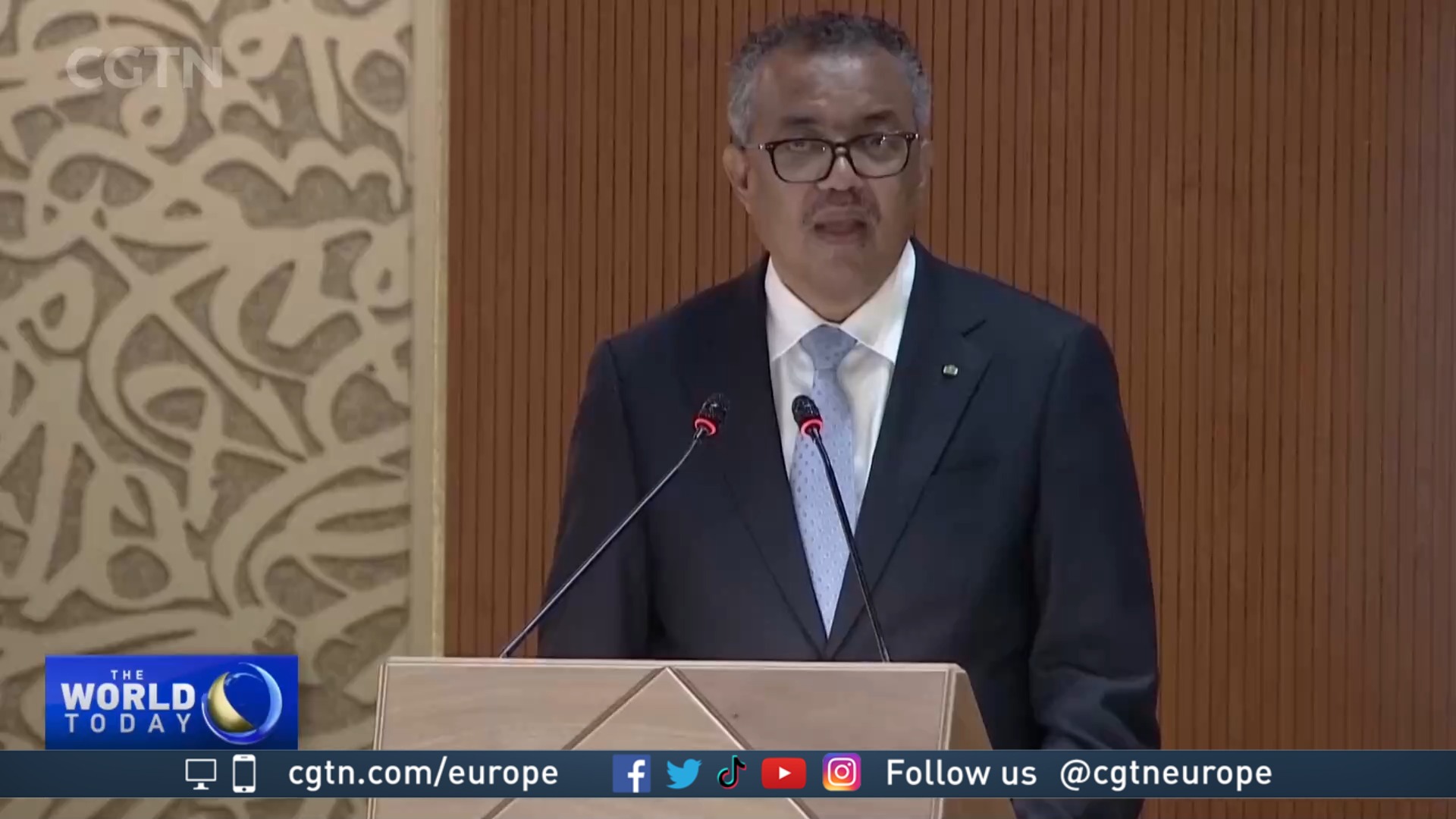02:57

He grew up amid warfare in Ethiopia and is not a medical doctor, but Dr. Tedros Adhanom Ghebreyesus brought a breath of fresh air to the leadership of the World Health Organization (WHO) and has now been rewarded with a second term.
No other candidate was put up against him. But what did Tedros achieve during his first administration and what lies ahead of him?
His first five years in office have not been without controversy. After the first COVID-19 warning from China, weeks passed before the WHO reacted. And the fact that the virus spreads via droplets in the air was initially denied by the organization.
Eventually, however, communication improved and Tedros now provides the international community with near real-time updates, which – far too often – unfortunately are not good news.
"It's clear that the world was and remains unprepared for a pandemic," Tedros said on day two of the 75th World Health Assembly in Geneva.

Tedros Adhanom Ghebreyesus, Director-General of WHO as we have often seen him, speaking in a news conference in Geneva, Switzerland. /Denis Balibouse/Reuters
Tedros Adhanom Ghebreyesus, Director-General of WHO as we have often seen him, speaking in a news conference in Geneva, Switzerland. /Denis Balibouse/Reuters
READ MORE
Mariupol's last stand
What is monkeypox?
McDonald's leaves Russia for good
Despite not making much headway, the 57-year-old Ethiopian has repeatedly pointed out the low vaccination rate in Africa, which, according to the WHO, has led to rising infection rates in many countries on the continent.
According to Antoine Fahault, epidemiologist at the University of Geneva, the global vaccination distribution programme COVAX would have had more success if directly led by WHO chief Tedros.
"At the end of the day it would have been better because it would have involved Russians and Chinese in this organization and for delivering the vaccine the Chinese proved their effectiveness," Fahault told CGTN. "We would have had a higher (vaccine) coverage in low-income countries."
But it's not just pandemic politics that have troubled Tedros's past term. The former Ethiopian minister of health and foreign affairs had to overcome criticism from his own country as well as a crisis last year following sexual abuse reports against WHO staff in the Democratic Republic of Congo.
Meanwhile, his role as WHO chief will not get any easier in Tedros's second five-year administration. Medical care continues to be lacking in war zones like Ukraine. And some even fear that another pandemic is arriving.
Fahault warns that as of May 23, the doubling time of monkeypox infections is about two days. "We are maybe on the verge of a new emergence of new epidemic trends we don't know. This is a question the WHO has to solve very quickly at an international level."
Despite initial criticism and the temporary withdrawal from the WHO of the United States, Tedros now enjoys the support of the international community, and he is giving a voice to those low-income countries that are very much in need of the organization's guidance, given the health challenges not only with infectious diseases but also with climate change.

